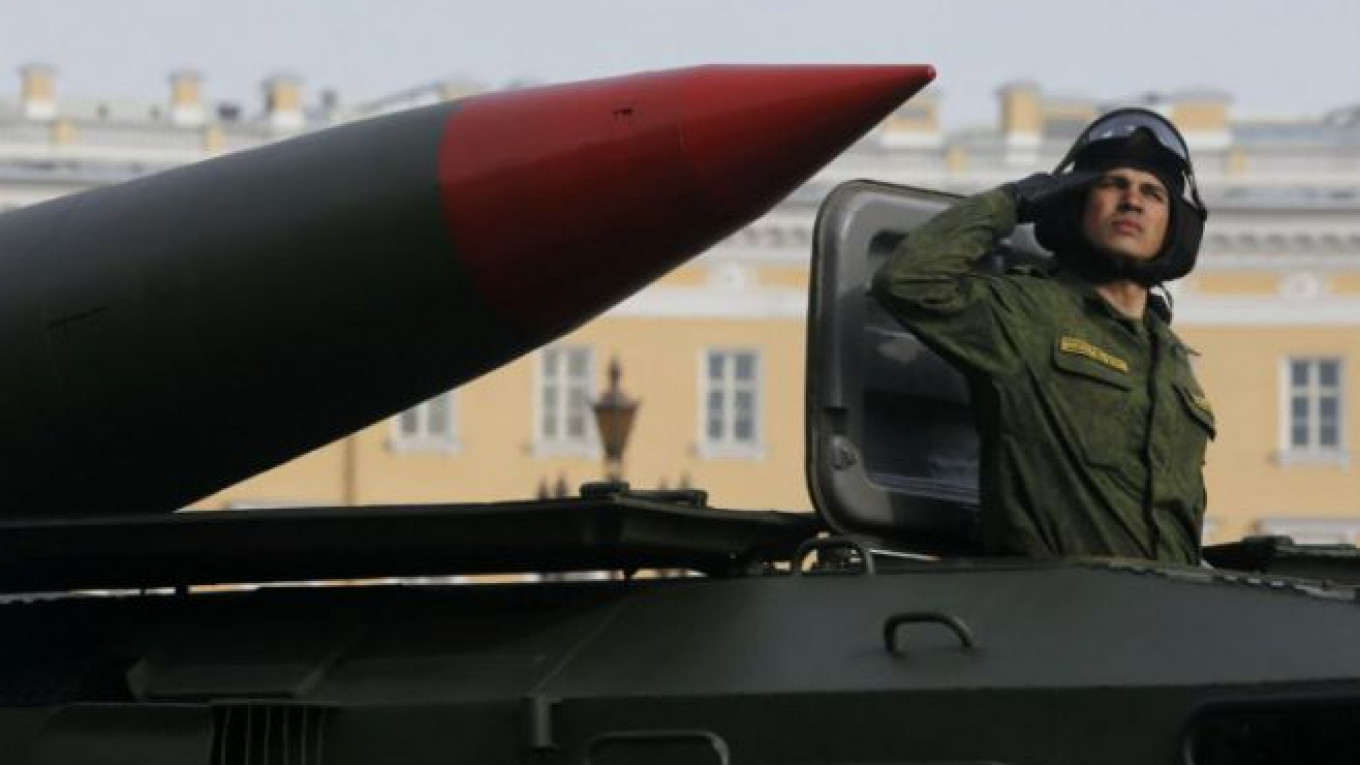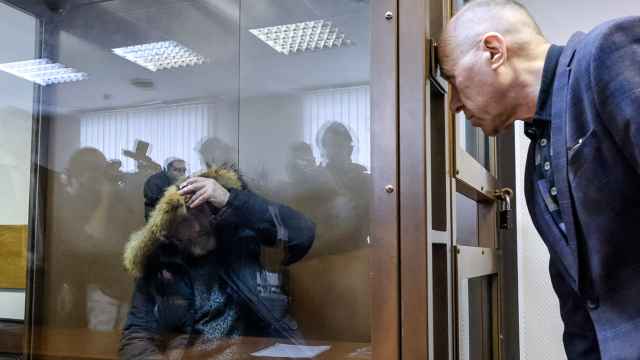A Russian Foreign Ministry official has said that the country may be compelled to increase its nuclear capacities in response the United States' alleged attempts to undermine international disarmament efforts, the RIA Novosti state news agency reported Sunday.
"Negative trends that undermine strategic stability and the prospects of nuclear disarmament are taking hold in the world," Mikhail Ulyanov, head of the Foreign Ministry's department for non-proliferation and arms control, was quoted by RIA Novosti as saying. "These negative factors do not come from us. They come from the United States."
Ulyanov cited the United States' missile defense program Prompt Global Strike, its reluctance to ratify the Comprehensive Nuclear-Test-Ban Treaty and a "serious imbalance" of conventional weapons in Europe as factors that could compel Russia to increase its nuclear potential, but added that this was not the case for the time being.
Last week, NATO military commander Philip Breedlove accused Russia of making irresponsible nuclear threats, media reported at the time.
President Vladimir Putin said in March that Russia had been prepared to put its nuclear forces on alert to ensure the annexation of Crimea. A Foreign Ministry official also said that month that the country had the right to deploy its nuclear arsenal to Crimea, although he was not aware of any plans to do so.
Meanwhile, in another iteration of heightened military rhetoric, Alexander Grushko, Russia’s envoy to NATO, said last week that Russia was prepared to bolster its military presence in Crimea to counter the organization’s increased activities in eastern Europe, RIA Novosti reported.
Poland and the Baltic states — Estonia, Latvia and Lithuania — said last week that they were seeking the establishment of permanent NATO deployments on their territories to deter Russian military activity.
These NATO states have repeatedly accused Russian fighter jets and military ships of lingering at their borders. Earlier this month, Latvia's military claimed that two Russian naval ships, a military transportation aircraft and a submarine were lurking on the edge of the country's territorial waters. Lithuania has also complained of Russian naval activity in its exclusive economic zone.
Contact the author at [email protected]
A Message from The Moscow Times:
Dear readers,
We are facing unprecedented challenges. Russia's Prosecutor General's Office has designated The Moscow Times as an "undesirable" organization, criminalizing our work and putting our staff at risk of prosecution. This follows our earlier unjust labeling as a "foreign agent."
These actions are direct attempts to silence independent journalism in Russia. The authorities claim our work "discredits the decisions of the Russian leadership." We see things differently: we strive to provide accurate, unbiased reporting on Russia.
We, the journalists of The Moscow Times, refuse to be silenced. But to continue our work, we need your help.
Your support, no matter how small, makes a world of difference. If you can, please support us monthly starting from just $2. It's quick to set up, and every contribution makes a significant impact.
By supporting The Moscow Times, you're defending open, independent journalism in the face of repression. Thank you for standing with us.
Remind me later.






